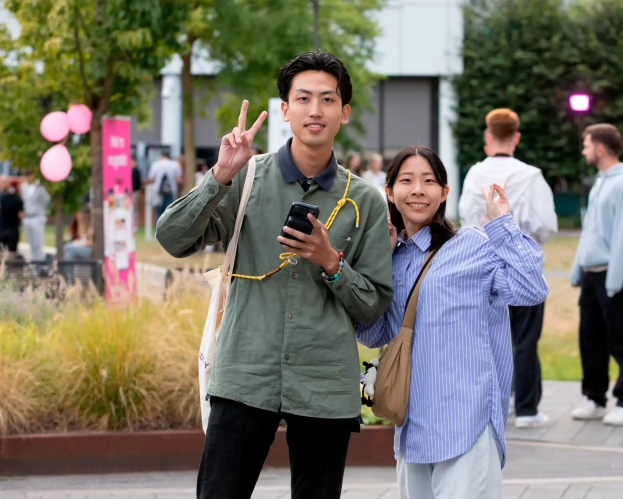

Interaction design
The Interaction Design research group stands for shaping the relationship between humans and technology in a way that is both innovative and human-centered. In a world where AI and digital innovations influence our daily lives, this research group is an incubator for research and experimentation aimed at optimizing human-machine interaction without losing sight of ethical, moral and human aspects.
The central question driving our research is, “How will humans cooperate and coexist with AI?” This question forms the basis for a variety of research projects. In doing so, the research group explores three main themes, each offering unique challenges and opportunities to better align technology with human needs: designing sensitive virtual humans, facilitating hybrid intelligent communities and developing immersive interactions.
Sensitive virtual humans
Sensitive virtual humans are one manifestation of AI. These virtual beings, based on advanced 3D animation, AI and sensor technology are able to recognize and interpret human emotions. For example, consider a virtual teacher who is able to pick up on subtle signals from a student, such as lack of concentration or emotional turmoil, and respond responsibly. Here it is essential that technology does not take over complete responsibility, but always operates in conjunction with human expertise. After all, humans remain the key to interpreting and acting ethically on complex real-world signals.
Hybrid intelligent communities
The research focuses on facilitating hybrid intelligent communities, where people and technology together form a harmonious and dynamic environment. Using AI, sensor technology and data analytics, we aim to create communities where technology does not replace, but rather supports. For example, a virtual assistant can be a bridge between different parties in a healthcare facility or an educational environment, contributing to a stronger, more engaged community. The focus here is not only on technological innovation, but also on embedding human values such as empathy, respect and inclusiveness.
Immersive interactions
Immersive interactions are another important part of our research portfolio. This theme explores how humans can live extraordinary experiences thanks to natural interaction with technology. Think of virtual environments where users can learn, work or relax in an intuitive way. By experimenting with technologies such as virtual reality and mixed reality, we create experiences that are not only technically impressive, but also truly connect with the user's needs and expectations. The application of such technologies ranges from education to healthcare, where the goal is to make interaction as human and accessible as possible.
Research and education: building the future together
The Interaction Design research group works with companies, educational institutions and civil society organizations to deploy technology within a broad social, ethical and practical context. Students play an active role in this and, in a rich learning environment, develop skills that prepare them for the professions of the future. By linking research to current issues such as polarization, inequality and the future of work, the research group contributes to both technological progress and a more inclusive society.
In short, the Interaction Design research group is shaping a future where technology is not just a tool, but a partner that helps us create a better, human-centered world.
Research projects
View our research projects in our portfolio.
Lector
Mark de Graaf is professor of Interaction Design at Fontys University of Applied Sciences Information and Communication Technology. He previously worked at Eindhoven University of Technology in the Industrial Design department and has earned his spurs in the topics of Playful Interactions and emergence in complex systems. He is co-founder of his own company, SmartGoals, which has successfully contributed to innovation in the world of sports.
Kennisteam

E.M. (Evelien) van de Garde-Perik
Lecturer and researcher






